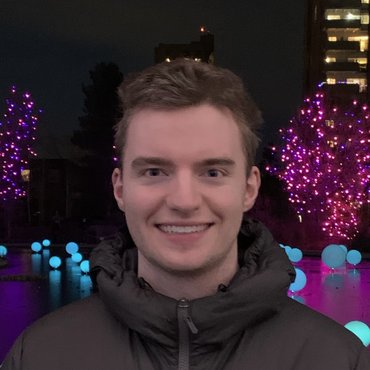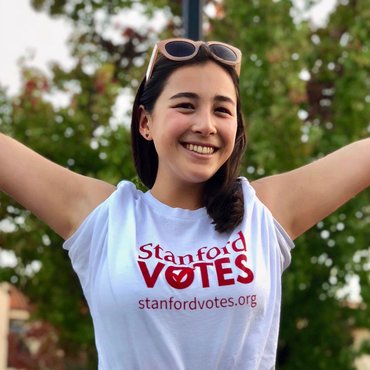
Tanner Christensen, ’24
Legal Fate
“Dad was just sent to prison again,” my mom said in her phone call with me, outlining the harrowing details.
My heart sank — not in disbelief, but out of worry that this cycle was never going to end. My single mother was left in penury with her three kids, forced into a system of suffering. Our family felt not only broken, but shattered.
Five years have passed, and my father is still incarcerated. For a long time, I felt alone in what I was going through. Yet, at Stanford, I have learned that my experiences are widespread.
During my first quarter, I was fortunate to take the Program in Writing and Rhetoric (PWR) class, What Are You, Anyway? with Dr. Harriett Jernigan. In the course, I learned about many of the injustices ingrained in our society, particularly mass incarceration.
With Dr. Jernigan’s guidance, I investigated the criminal justice system’s extractive practices that harm both inmates and their families. One such practice is the exorbitant price of the inmate telephone system. Despite an inmate’s humiliatingly low wages, they pay extraordinary prices to call home. This financial barrier systematically blocks individuals from connecting with their families and loved ones—it restricts me to only talking to my father for about an hour every year.
Throughout my research, I learned about the multifaceted issues of the carceral system, including the harms of recidivism (someone recommitting a criminal offense), the disproportionate impact on marginalized communities (predominantly people of color), and the prison-industrial complex. Even after a quarter of research, I still had many questions, spurred by my newly grown passion for fixing this broken system.
After struggling with the complex questions brought on by my PWR class and my own experiences, I stumbled on Root & Rebound—an Oakland-based nonprofit focused on prisoner reentry. Their work is cutting-edge and focuses on exactly what I want to get involved with: using the law to rectify the carceral system.
Root & Rebound recognizes the hundreds of collateral consequences that follow systems-impacted people. Their model works directly to minimize these consequences—namely through reducing recidivism. I was eager to get involved and, after a three-step interview process, I was offered a communications internship on their development team with funding from Stanford’s Community Service Work-Study (CSWS) program.
I was thrilled to do this work alongside people I admired. My role was to publicize the legal team’s work through social media development, content creation, newsletters, and announcements. After joining the team and listening in on meetings, I wanted to use the organization’s social media platforms to educate people on the many complexities behind mass incarceration. This sparked a series of posts I created to break down for viewers the impacts of the carceral system.
My posts began with the effects on the LGBTQ+ community in honor of Pride month. Soon, it expanded to include interpersonal violence, housing insecurity, and repercussions for families and Black and brown people. These posts received significant support on their social media platforms and acknowledgement from team members, serving as an effective public education vehicle to support Root & Rebound’s mission to restore power to communities harmed by mass incarceration.
I felt gratified with the work I was doing, but a particular assignment left me wanting more. One day, my supervisor asked me to transcribe some interviews with former clients. Listening to these stories inspired me with the ways the Root & Rebound legal team had transformed their clients’ lives. Despite my love for the work in communications, I knew that law was the avenue I wanted to pursue to interact with clients directly.
My internship with Root & Rebound was an experience I will never forget. I learned many skills, and it solidified my desire to go into public interest law. Seeing the materialized effects of the law has demonstrated the profound impact it can have. I want to help others who don’t know how to navigate their legal struggles. The law can make or break someone, but people deserve a chance to change their lives, especially when their actions are sparked by environmental influences. No one should live a life stuck inside of the revolving door of a prison. One’s past should not dictate their fate.


